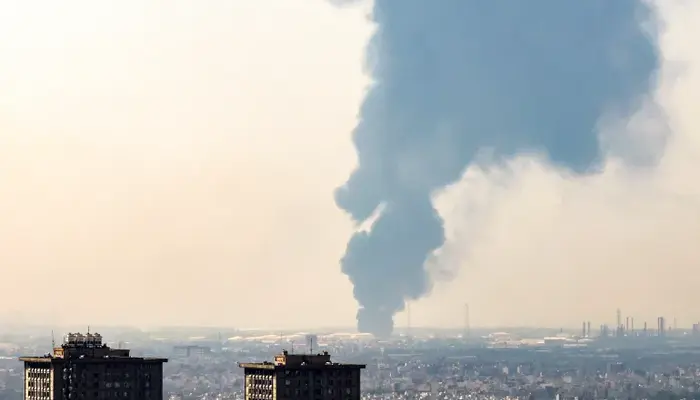While the world watches the devastating human cost of conflicts in Gaza, Ukraine, Syria, Yemen, and the rising hostilities between Israel and Iran, scientists warn of a less visible but equally catastrophic consequence: climate and environmental degradation. According to recent studies and environmental watchdog reports, modern warfare is significantly exacerbating the climate crisis through destruction of infrastructure, deforestation, emissions from heavy military machinery, and contamination of water and soil.
“War accelerates environmental collapse,” says Dr. Clara Hoskins, an environmental scientist with the International Climate Action Network. “Beyond the bombs and bullets, war damages ecosystems, destroys carbon sinks, and poisons the air and water for years or even decades.”
Military Emissions and Destruction of Carbon Sinks
The defense sector is one of the world’s largest emitters of greenhouse gases, and ongoing conflicts have intensified those emissions. Military operations rely heavily on fossil fuels — tanks, fighter jets, warships, and trucks consume massive quantities of diesel and aviation fuel. In the Ukraine-Russia war alone, CO₂ emissions from fuel usage, infrastructure destruction, and fires have already crossed over 120 million metric tons, according to the Conflict and Environment Observatory (CEOBS).
In Gaza, scientists say Israel’s relentless bombing campaign has not only killed thousands but also destroyed key urban infrastructure and green cover, turning parts of the region into wastelands. Burning buildings release particulate matter and toxic gases, increasing local pollution levels.
Forests in Syria and Yemen have been wiped out due to military activity, depriving those regions of vital carbon sinks. The civil war in Yemen has led to rampant deforestation, as desperate families turn to wood for fuel amid fuel shortages.
Read: G7 Urges De-escalation in Middle East Amid Rising Israel-Iran Tensions
Water, Soil, and Air: The War-Scarred Elements
Bombs and chemical munitions don’t just destroy cities; they contaminate soils and groundwater, often irreversibly. In Gaza and Syria, agricultural lands have been rendered unusable due to explosive residue, chemical pollutants, and salinization from bombings. In Ukraine, reports have surfaced of industrial chemical leaks from damaged factories and oil depots, some of which threaten to pollute the Dnipro River and Black Sea.
Dr. Marina Fedorova, an ecotoxicologist from the European Environmental Agency, says, “What’s happening in Ukraine is an environmental disaster. Rivers, farmlands, and entire ecosystems have been contaminated. Recovery could take decades — if peace comes soon.”
Meanwhile, Iranian oil fields are under threat from Israeli missile strikes, posing a risk of massive oil spills and air pollution should storage sites be hit. Similar fears are rising in Syria, where ISIS-era oil fires are still fresh in memory.
Scientists Call for Climate Ceasefires and Green Accountability
The environmental impact of war often escapes global attention — but scientists are urging immediate action. A growing coalition of climate scientists, peace activists, and UN officials are calling for “climate ceasefires” — temporary halts in hostilities to allow environmental assessment and restoration. They also want countries to include military emissions in national climate reports, something that is currently voluntarily reported — or not at all.
“War and climate change are intertwined crises,” says UN climate advisor Dr. Farid Al-Mansoori. “If we want a habitable planet, we must reduce both bombs and carbon.”
In their upcoming October climate summit, UN officials plan to introduce a resolution urging war-affected countries to conduct environmental impact audits and hold combatants accountable for long-term ecological damage.
As conflicts escalate and peace remains elusive, the planet continues to bear silent scars — scars that may outlast the wars themselves.
Follow us on Facebook and Instagram
